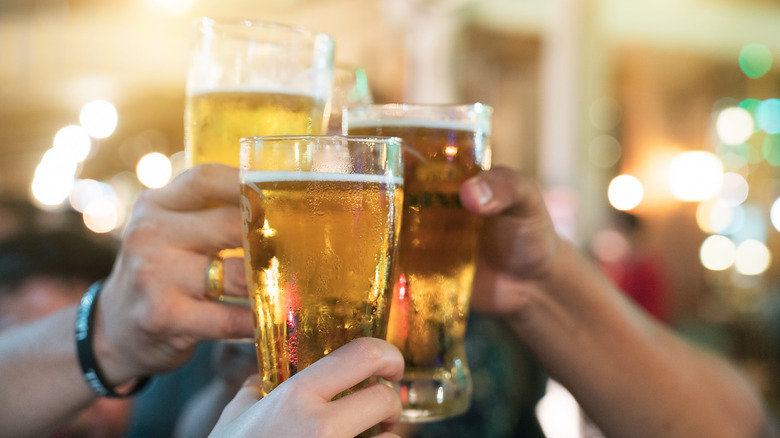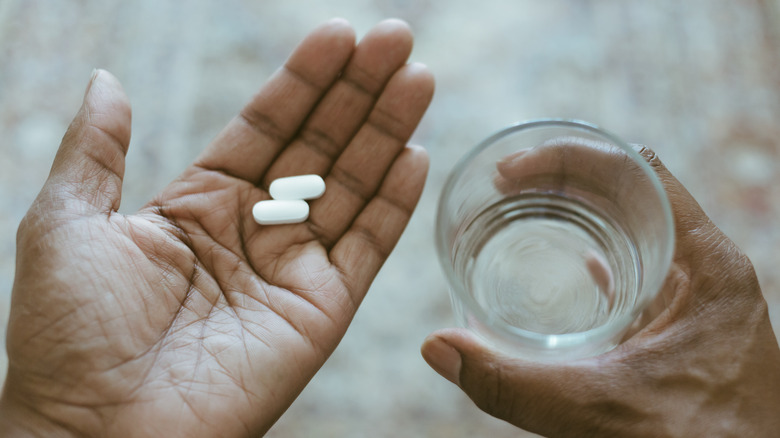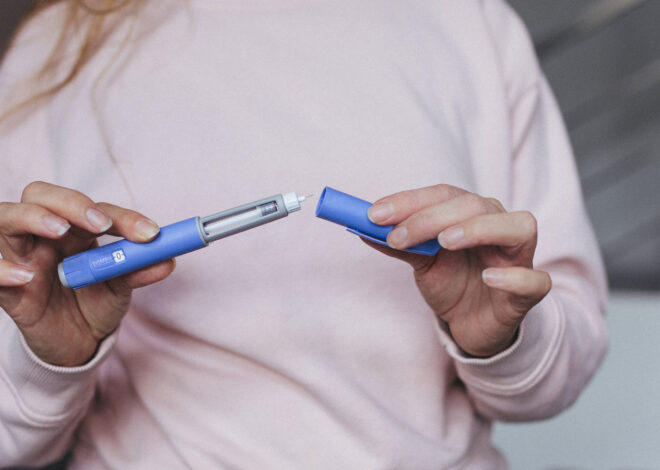
When You Take Ibuprofen After Drinking Alcohol, This Is What Happens – Health Digest
A glass of wine or pint of beer can relax you after a hard week of work, but that one drink can easily slip into several drinks. Maybe the headache starts before you go to bed, so to ward off a deathly hangover the next day, you pop an ibuprofen or two.
Taking ibuprofen and other nonsteroidal anti-inflammatory drugs (NSAIDs) on an empty stomach could cause GI issues, but taking them when you still have alcohol in your system could be worse.
“Mixing ibuprofen with alcohol is actually dangerous,” Pain Medicine/Physical Medicine and Rehabilitation Physician Dr. Jesse Hatgis, D.O. said in an exclusive interview with Health Digest. “Both substances can individually cause major issues in the stomach, intestines, liver, heart, and kidneys. When taken together, these issues may worsen. Most frequently, ulcers and bleeding in the stomach may occur.”
Hatgis explains in more detail how ibuprofen and alcohol both affect the body and how they interact with one another. He also provides alternatives to taking ibuprofen after drinking alcohol.
How ibuprofen and alcohol both affect the body
Ibuprofen and other NSAIDs relieve pain by limiting the prostaglandins that produce pain and inflammation in your body. These prostaglandins also protect the lining of your stomach, which is why it’s often suggested to take ibuprofen with food. That’s why taking ibuprofen often can cause stomach ulcers and intestinal issues, especially in people over 60.
You might notice how alcohol affects your stomach if you drink without eating. Alcohol also irritates your stomach lining and causes inflammation. Many medications will often have a warning about their interaction with alcohol. “Alcohol inhibits important enzymes that ordinarily break down many medications,” Dr. Jesse Hatgis said. “This changes the power and time that the medication is active in the body.”
Alcohol is considered to be toxic for your body, so your liver goes to work to break down and remove alcohol from your system. According to a 2021 study in Biomolecules and Therapeutics, the alcohol-ibuprofen combo creates oxidative stress that can damage your liver cells. “The scary thing is that people have become so comfortable using these over-the-counter substances for decades, that they do not realize their potential side effects and how they can interact with one another,” Hatgis said.
How long to wait after drinking alcohol to take ibuprofen
People with arthritis might need to take ibuprofen often to manage their pain, but the over-the-counter (OTC) formula isn’t meant to be taken for more than a few days. A doctor can prescribe a slow-release ibuprofen to help manage arthritis and a proton pump inhibitor (PPI) to protect the stomach. GoodRx says that most people taking ibuprofen can have a single drink without much harm.
If you’ve had more drinks than that, Dr. Jesse Hatgis recommends waiting 24 hours before taking ibuprofen. “Ultimately, it depends on how much someone has to drink and how fast their body metabolizes the alcohol to inactive metabolites,” he said. You’re more likely to run into problems with an alcohol-ibuprofen interaction if you drink alcohol and take ibuprofen often.
Don’t think that you can take another pain medication like aspirin or naproxen and still drink alcohol. All pain medications have their own interactions with alcohol that can be toxic long-term.
(Read about the effects alcohol has on your body.)
Hatgis doesn’t advise taking any pain medication if you’re drinking alcohol. He suggests stretching, massage, or deep breathing to help relieve pain until the alcohol is out of your system. “Alcohol itself actually dulls the nervous system, so it should help to decrease the perception of pain, although using alcohol to relieve pain is obviously not recommended,” he said.





